All roads lead to Texas these days and years. Texas added more new residents in 2021 than any other state, according to the U.S. Census.
A rarified group of legal incomers has joined the crowd. U.S. Supreme Court law clerks often call Washington, D.C., home after their clerkships. But increasingly, Supreme Court clerks – especially those who worked for conservative justices – have headed to the Lone Star state to practice law and, often, to build a family.
“It’s not surprising that the nation’s top legal talent would be drawn to one of the nation’s top legal markets,” said Allyson Ho, a partner in the Dallas office of Gibson, Dunn & Crutcher and co-chair of the firm’s nationwide Appellate and Constitutional Law practice group. She was a clerk to Justice Sandra Day O’Connor in 2002.
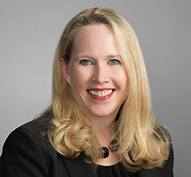
Allyson Ho
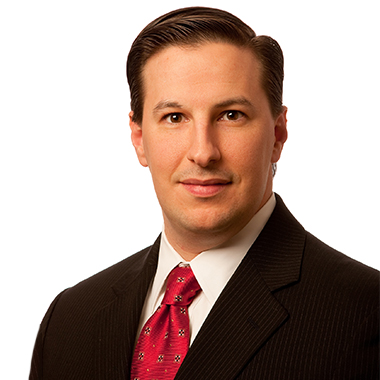
Aaron Streett
Aaron Streett, who chairs Baker Botts’ Supreme Court and Constitutional Law Practice in Houston said “The lure of D.C. is pretty strong,” and the pipeline to Texas is “intermittent.”
But he added, “With the number of prominent conservative judges on the Fifth Circuit that are younger and that are probably already feeder judges or likely to become feeder judges to the conservative justices, I am not surprised if there’s more of an uptick of clerks taking a look at Texas.” Streett was a clerk to Chief Justice William Rehnquist in 2003.
With this trend in mind, several months ago we set out to interview a modest assortment of former Supreme Court clerks who are currently in private practice in Texas. We asked several questions, including what advice they would give to law students who might want to clerk at the Supreme Court. We also sought their views on how the prestigious clerkship has benefited their career and what memorable occasions they had at the high court. Hence, the smoking brisket inside the court’s interior courtyard.
Just as we were gathering participants for our survey, a bombshell dropped. On May 2, Politico reported that it had obtained a draft copy of Justice Samuel Alito Jr.’s pending opinion in the abortion case Dobbs v. Jackson Women’s Health Organization. Almost immediately, speculation turned to the Supreme Court’s law clerks as possible culprits for the leak – even though that is still far from certain. A breach of that magnitude by a law clerk would be almost unconceivable, given that total confidentiality is a deeply held part of the Supreme Court’s culture.
In light of the headline-making news possibly involving clerks, we felt compelled to add a question to our clerk survey about the Alito leak. Not all of the participants answered.
So, here is a collection of the answers we received from several Supreme Court clerks who migrated to Texas:
When and why did being a Supreme Court clerk become a goal for you?
“Setting a goal to be a Supreme Court clerk is a little like setting a goal of being a U.S. senator. There are so many variables involved, including some that are completely out of your control, that you need to be realistic about the chances, acknowledge that luck plays a role and be comfortable with whatever may happen.” – George Hicks Jr., partner at Kirkland & Ellis in Dallas, clerked for Chief Justice John Roberts Jr.
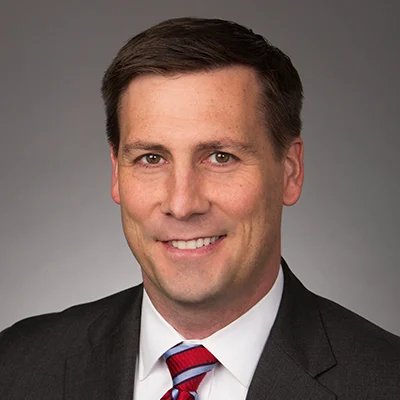
George Hicks Jr.
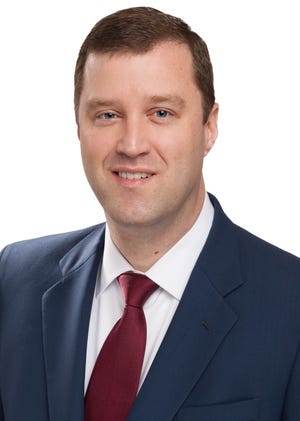
Evan Young
“I don’t remember consciously thinking that I personally could be a Supreme Court law clerk until well into my time at law school. Even then, it was more a hope and a dream than anything else. I had friends and professors who encouraged me to apply, so I did, and I’ll never forget the experiences of interviewing with Justice Scalia, waiting for him to get back to me and then taking his call when he offered me the job. – Evan Young, justice on the Supreme Court of Texas, clerked for Justice Antonin Scalia
“I don’t know that clerking at the Court was ever a ‘goal’ of mine – for the same reason that winning the lottery is not a serious goal: The odds are decidedly not in the player’s favor. But I spent my evenings in law school pacing the Death Valley parking lots at LSU, studying Supreme Court cases in the assigned reading for the next day and listening to the corresponding oral arguments by some of the greats like Paul Clement and Michael Dreeben. And at some point between those evening walks and my own moot court adventures, I developed a love for brief writing and oral advocacy. So, I set out to try to build a strong resume for an appellate career – good grades, clerkships for wonderful Texas Supreme Court and Fifth Circuit judges, and so on. That was my real goal.” – J. Benjamin Aguiñaga, associate at Jones Day in Dallas, clerked for Justice Samuel Alito Jr.
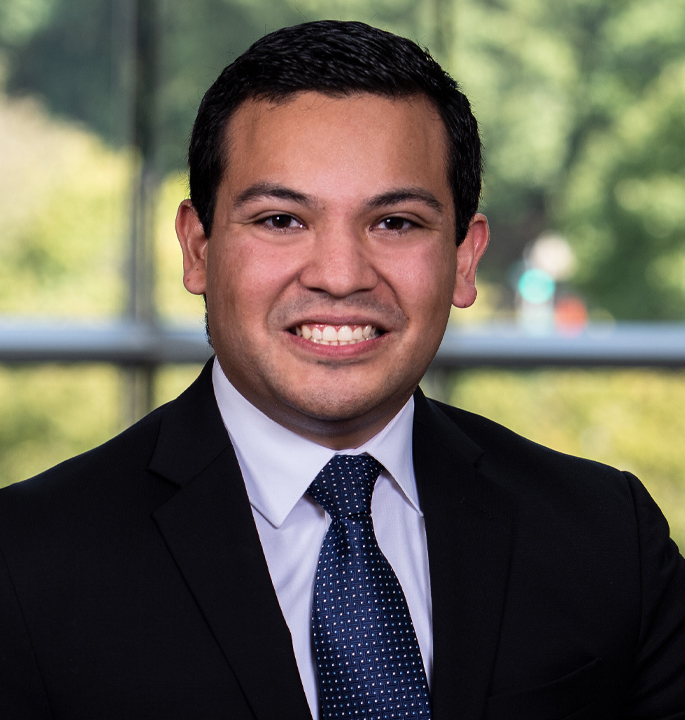
Benjamin Aguiñaga
What advice would you give a law student who wants to clerk at the U.S. Supreme Court?
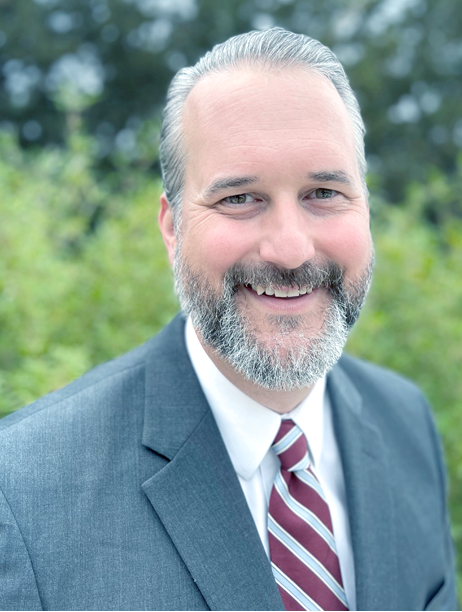
Kyle Hawkins
“Get top grades and devoted mentors. Lots of people do well in law school; to get a Supreme Court clerkship, you need to stand out. Recommendation letters from appellate judges and professors go a long way.” – Kyle Hawkins, partner at Lehotsky Keller in Austin, clerked for Justice Samuel Alito Jr.
“I always give the same advice whether one gets the clerkship or not: Don’t obsess about it. It may be a staff job that many people want. But it’s just a staff job, it’s not a career objective. Hundreds of folks apply every year who would do just as good of a job, or better, than the few dozen who get hired. Countless lawyers do better in private practice or government service who didn’t clerk on the court than who did. There are plenty of folks who had the opportunity to clerk there but declined. [My wife] Allyson and I both clerked. But neither of us altered what we did to do it. I was told I would have an interview with a D.C. Circuit judge who regularly hired clerks who later clerk on the court. I passed, because I didn’t really want to clerk on the D.C. Circuit, and because I already had an interview with [Fifth Circuit] Judge [Jerry] Smith, who was my hero for writing the Hopwood decision.” – James Ho, judge on the U.S. Court of Appeals for the Fifth Circuit, clerked for Justice Clarence Thomas.
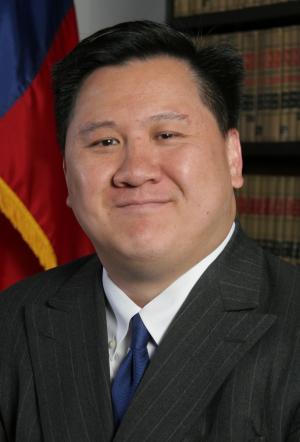
James Ho
“Graduating at the top of your class can set you apart from other applicants. And, second, befriend former clerks who have accomplished what you would like to accomplish. They can give you extremely helpful guidance, and they might even drop their judge or Justice a personal note or text that moves your application from the big pile to the short stack.” – J. Benjamin Aguiñaga, (Alito clerk)
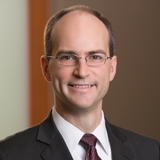
William Peterson
“Most of all, know that you cannot make the clerkship happen. It’s a bit like being struck by lightning: You can increase the odds, but it’s always a matter of chance. The good news is that effort in pursuing a Supreme Court clerk is not wasted. All of the qualifications that make a law student competitive for a Supreme Court clerkship … will be valuable regardless of whether they lead to a clerkship at the Court. – William Peterson, partner at Morgan Lewis in Houston, clerked for Justice Clarence Thomas
“A lot of it comes down to luck. But luck can only help an applicant who has impressed the right person at the right time. I would advise a law student to participate in a broad range of activities to get know different people in the legal community and to do his or her best work for each one of them at all times. You never know when some stellar work and professionalism can lead to a recommendation or connection that could make your clerkship application stand out. – Denise Lambert Drake, associate at Gibbs & Bruns in Houston, clerked for Justice Stephen Breyer
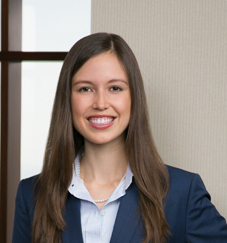
Denise Lambert Drake
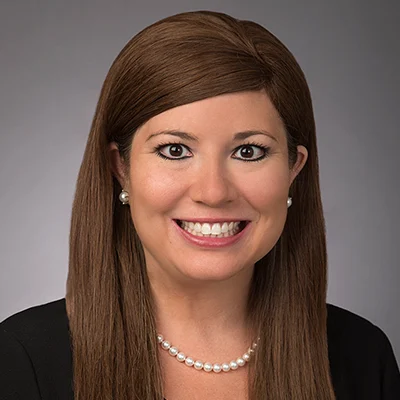
Kasdin Miller Mitchell
“Take it one step at a time. While you’re in school, focus on your coursework. Try to get the most out of your classes, do the best you can on your exams, and get to know your professors. If you are fortunate enough to secure a clerkship in a federal court of appeals, make the most of that experience. Do the best you can for your judge and invest in your co-clerks. All of those efforts will pay off if you choose to pursue a clerkship at the court, but it would be a mistake to always look to the next best thing and miss out on some of the truly valuable experiences along the way. – Kasdin Miller Mitchell, partner at Kirkland & Ellis in Dallas, clerked for Justice Clarence Thomas
How has being a Supreme Court law clerk benefited you in your legal career?
“Justice Thomas was and is a phenomenal mentor both professionally and personally. … That clerking at the court has such tremendous benefits to being a better writer and appellate lawyer is not only valuable for its own sake, but because it communicated to more senior lawyers when I was an associate, and communicates to clients now, that I would have that knowledge and skill. – Ashley Johnson, of counsel at Gibson Dunn in Dallas, clerked for Justice Clarence Thomas
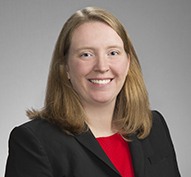
Ashley Johnson
“It has opened doors. As a credential, ‘Supreme Court law clerk’ is shorthand that communicates a great deal of information about qualifications and experiences, and it helps you stand out from other attorneys.” – William Peterson (Thomas clerk)
“I predominantly do issues and appeals, so being a Supreme Court clerk has greatly contributed to that practice. … I need to be able to turn from one difficult issue to another on a dime and to get up to speed quickly on challenging subjects. The best training for that was being a Supreme Court clerk, where one frequently has to pivot from one hard issue to another, on a tight deadline –and for a demanding client!” – George Hicks Jr. (Roberts clerk)
“The experience has conferred a tremendous benefit. My research, writing, editing and analytical skills were sharpened during my year on the court, all of which translates into the service I try to provide my clients in practice. At the court, there is truly no room for error – our work is conducted under a microscope – and so you never stop digging until you find the answer. I try to bring that same level of attention and work ethic to my matters at the firm.” – Kasdin Miller Mitchell (Thomas clerk)
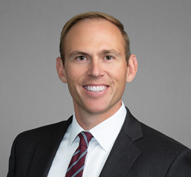
Stephen Hammer
“It’s a bit too soon to say how the clerkship has affected my legal career, as I finished clerking less than a year ago. In terms of my practice, I’m grateful that the clerkship gave me exposure to many different areas of law and helped me refine my research and writing skills.” – Stephen Hammer, associate at Gibson Dunn in Dallas, clerked for Chief Justice John Roberts Jr.
“My work for my clients is inspired every day by the approach to legal writing that I learned from Justice Breyer, who always sought to combine his academic passion for the law with an unfailing pragmatism.” – Denise Lambert Drake (Breyer clerk)
What are one or two favorite experiences you had as a U.S. Supreme Court law clerk?
“My hands-down favorite experience was smoking my first briskets at the court. I befriended a court employee who had built a huge wood-fired smoker for the court, complete with a gavel atop the smokestack. The final Alito clerks’ law clerk happy hour was barbecue-themed. So, I borrowed the smoker for a dry run with Brisket #1 and some pork belly for the Justice and our chambers staff. I then smoked Briskets #2, #3 and #4, pork belly and corn for the happy hour –an all-night affair tending to the fire in a courtyard while editing a draft opinion.” – J. Benjamin Aguiñaga (Alito clerk)
“One of our most unique experiences was the chief justice presenting Justice Kennedy with a bobblehead trophy –after us Kennedy clerks defeated the chief’s clerks in a sand volleyball match.” – Scott Keller, partner in Lehotsky Keller in Austin, clerked for Justice Anthony Kennedy
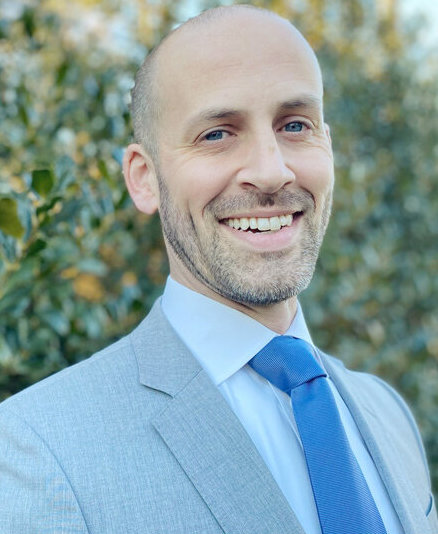
Scott Keller
“One of my favorite experiences was bringing my family to watch the court at work and, especially, to visit with Justice Thomas. He treats everyone who comes into his office with the utmost respect and is extremely generous with his time. It was a treat for me to be able to share a small part of my clerkship experience with my family.” – Kasdin Miller Mitchell (Thomas clerk)
“I loved the Thursday afternoon happy hours at the court. All the clerks would gather in a courtyard to let their hair down, talk about things other than their work and generally socialize. Each week, different chambers would be in charge of the happy hour. Some chambers went all out, even once roasting an entire pig. Some chambers did considerably less –just chips and salsa –which did not go unnoticed. … Sometimes even a Justice or two would stop by. It was a reminder that wherever we stood on the ideological spectrum or for whomever we clerked, we could all be friendly ‘after hours.’ I don’t know if the clerks still follow this tradition. I hope they do.” – George Hicks Jr. (Roberts clerk)
You could have had many choices after the clerkship, so why did you pick Texas?
“Texas is home for me. I was born and raised in the Dallas area, my parents still live here, and it is the community that my wife and I wanted to raise our children in. At the same time, Texas has a sophisticated and exciting legal market, which presents a lot of professional opportunities for a young lawyer. So, I viewed going back to Texas to practice as a chance to have the best of both worlds.” – Stephen Hammer (Roberts clerk)
“In my home state of Texas, I’ve sought to build a legal practice that leverages the best of what the Texas legal market has to offer: a global reach of innovative clients and fellow lawyers operating at the forefronts of their fields. The Texas legal market is distinctive in its fiercely meritocratic mindset, and I love it here.” – Denise Lambert Drake (Breyer clerk)
“The Texas legal market is booming as businesses continue to pour into the state and big law firms continue to open new offices. Because Jones Day has a significant presence in Texas, and the firm’s Issues & Appeals practice has lawyers throughout the country, this works out great. This is a terrific time to be on the ground in Texas and ready to handle old and new clients’ needs.” – J. Benjamin Aguiñaga (Alito clerk)
In light of the clerks’ reputation for confidentiality, how surprised were you to learn of the leak of the draft opinion, and do you think that reputation has been damaged?
“Law clerks are told that confidentiality is paramount from Day One, and I clearly remember Justice Thomas sitting down with us to reiterate personally that there were no circumstances in which any information about a case should ever be shared outside the court. … It is incredibly disappointing and harmful to open debate and discussion at the court that someone who had access to the draft opinion would share it publicly.” – Ashley Johnson (Thomas clerk)
“I was very surprised by it. I still am, frankly. I suppose it’s inevitable that whoever leaked the opinion damaged the court’s reputation for confidentiality, but I don’t think it’s necessarily permanent.” – Evan Young (Scalia clerk)
“I was shocked. Of course, we don’t yet know who the leaker was, and, as far as I know, no one has confirmed that it was a law clerk. Whoever it was, the leak is an appalling breach of confidence.” – Kyle Hawkins (Alito clerk)
